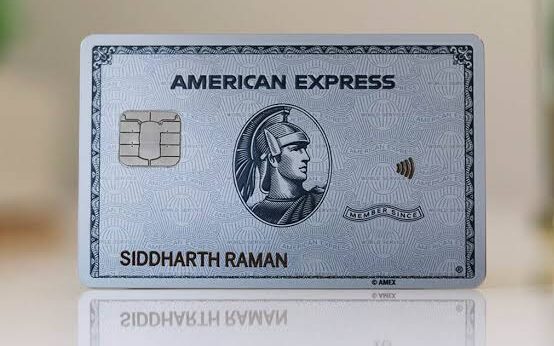In the modern financial landscape, a good credit score can open doors to opportunities such as favorable loan terms, rental agreements, and even job prospects. For many Americans, managing credit cards is a crucial part of building and maintaining a healthy credit score. This article will delve into the nuances of credit scores, the impact of credit cards on your score, and strategies to enhance your financial health.
What is a Credit Score?
A credit score is a three-digit number that summarizes your creditworthiness based on your credit history. Ranging from 300 to 850, a higher score indicates better creditworthiness. Various factors influence your credit score, including payment history, amounts owed, length of credit history, types of credit used, and recent credit inquiries.
The Components of a Credit Score
Understanding how your credit score is calculated is vital. The most commonly used model is the FICO score, which breaks down as follows:
- Payment History (35%): This is the most significant factor. It reflects whether you have paid your bills on time. Late payments, collections, and bankruptcies negatively affect this component.
- Amounts Owed (30%): This measures your total debt compared to your total available credit, known as the credit utilization ratio. A lower ratio (generally under 30%) is favorable.
- Length of Credit History (15%): This factor considers how long your credit accounts have been active. A longer credit history typically contributes positively to your credit score.
- Types of Credit Used (10%): This looks at the diversity of your credit accounts, such as credit cards, mortgages, and installment loans. A mix of credit types can be beneficial.
- New Credit (10%): This tracks the number of recently opened accounts and inquiries into your credit report. Too many inquiries in a short period can indicate risk.
The Importance of Credit Scores
A solid credit score is essential for various reasons:
- Loan Approvals: Lenders use your credit score to assess your risk as a borrower. A higher score increases the likelihood of approval and can secure lower interest rates.
- Rental Applications: Landlords often check credit scores as part of the application process. A good score can give you an advantage in competitive rental markets.
- Insurance Rates: Some insurance companies use credit scores to determine premiums. A better score may lead to lower rates.
- Employment Opportunities: Certain employers may review your credit score as part of their hiring process, particularly in financial roles.
How Credit Cards Impact Your Credit Score
Credit cards play a significant role in shaping your credit score. Understanding this relationship is crucial for managing your finances effectively.
1. Establishing Credit History
Using a credit card responsibly is one of the easiest ways to establish a positive credit history. When you open a credit card account, it adds to your length of credit history, which is beneficial for your credit score. Keeping the account active and in good standing will bolster your credit profile over time.
2. Payment History
Your payment history is the most critical factor affecting your credit score. Paying your credit card bill on time will contribute positively to this aspect. Conversely, late payments can significantly harm your credit score, staying on your report for up to seven years.
3. Credit Utilization Ratio
Your credit utilization ratio is a critical component of your credit score. It represents the amount of credit you are using compared to your total available credit. Ideally, you should keep your utilization ratio below 30%. For example, if your total credit limit across all cards is $10,000, try to maintain your balance below $3,000.
4. Types of Credit Accounts
Credit cards represent a revolving type of credit, which can diversify your credit mix. Lenders favor a combination of credit types (revolving and installment loans), as it shows you can manage various forms of credit effectively.
5. New Credit Inquiries
Every time you apply for a new credit card, a hard inquiry is generated on your credit report, which can temporarily lower your credit score. Too many inquiries in a short time may signal financial distress to lenders, negatively affecting your overall creditworthiness.
Tips for Building and Maintaining a Healthy Credit Score
Managing your credit cards effectively can help you build and maintain a strong credit score. Here are some tips to keep in mind:
1. Make Timely Payments
Always pay your credit card bills on time. Setting up automatic payments or reminders can help you avoid late fees and missed payments, which can severely impact your credit score.
2. Monitor Your Credit Utilization
Keep your credit utilization ratio low by paying down balances and avoiding maxing out your cards. If possible, pay off your balance in full each month to avoid interest charges.
3. Maintain Old Credit Accounts
Keep older credit accounts open, even if you don’t use them frequently. The length of your credit history contributes positively to your credit score.
4. Diversify Your Credit Mix
Consider having a mix of credit types, such as a credit card and an installment loan (like a car loan or student loan). This diversity can enhance your credit score.
5. Limit New Credit Applications
Be cautious about applying for new credit cards. Limit your applications to prevent multiple hard inquiries on your report, which can temporarily lower your credit score.
6. Regularly Check Your Credit Report
Review your credit report at least once a year to ensure accuracy. You can obtain a free report from each of the three major credit bureaus—Equifax, Experian, and TransUnion—once a year. Dispute any inaccuracies you find to protect your credit score.
7. Use Credit Responsibly
While credit cards can help build your credit score, using them irresponsibly can lead to debt accumulation and a negative impact on your financial health. Stick to a budget and avoid impulse purchases on credit.
8. Consider Becoming an Authorized User
If a family member or close friend has a good credit history, consider becoming an authorized user on their credit card. Their positive payment history can help boost your credit score.
The Role of Credit Education
In today’s complex financial environment, understanding how credit scores work and how credit cards impact them is essential. Credit education resources are available through various platforms, including:
- Online Courses: Many websites offer free or low-cost courses on personal finance and credit management.
- Nonprofit Credit Counseling Services: Organizations like the National Foundation for Credit Counseling (NFCC) provide resources and counseling to help individuals understand and manage their credit.
- Financial Blogs and Podcasts: Numerous blogs and podcasts focus on personal finance, offering valuable tips and insights into building and maintaining a healthy credit score.
Conclusion
Your credit score is a vital aspect of your financial health, influencing everything from loan approvals to insurance rates. Understanding how credit cards affect your credit score is crucial for making informed financial decisions. By managing your credit cards responsibly—making timely payments, keeping your credit utilization low, and maintaining a diverse credit mix—you can build a solid credit score and pave the way for future financial success.
Investing time in credit education and actively managing your credit will pay off in the long run. Remember, a strong credit score is not just a number; it’s a gateway to greater financial opportunities and security. Start taking steps today to improve and maintain your credit score, and watch how it positively impacts your financial journey.

